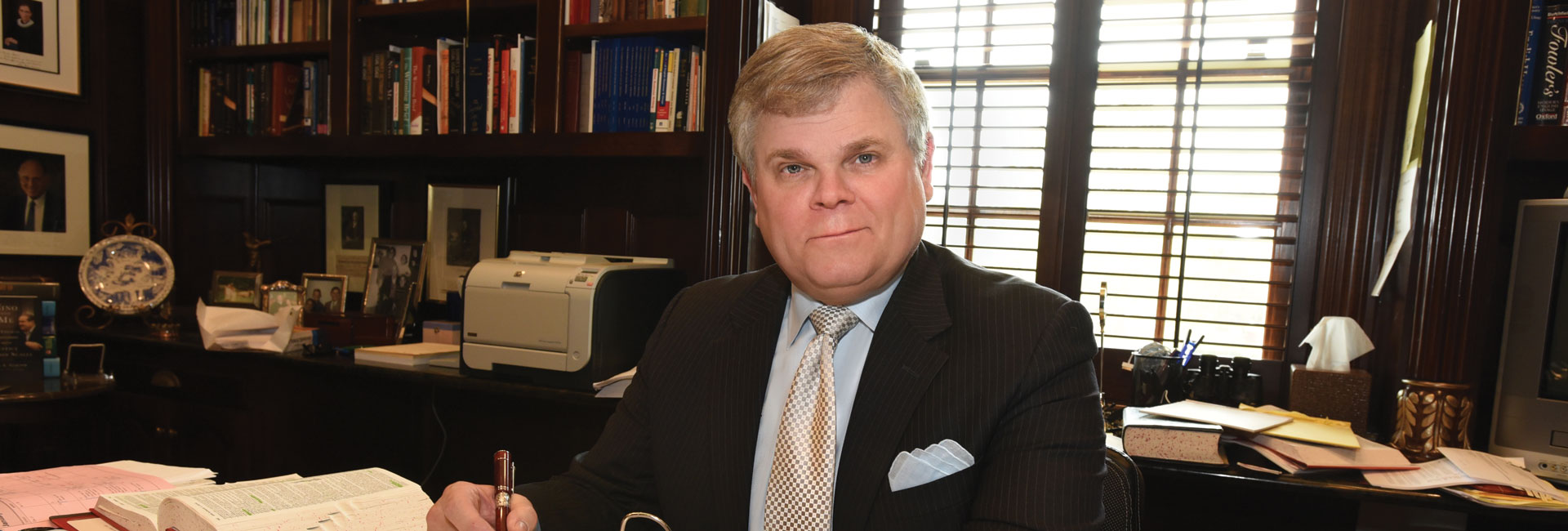Bryan Garner on Words/Year in Review
Bryan Garner's 2021 legal writing tips

Photo of Bryan Garner by Winn Fuqua Photography.
This year, Bryan Garner gave us tips for using legal dictionaries, a three-part series on how to manage a day's worth of legal writing, and an ode to a state bar journal that's championing the use of plain English. Here's the full wrap-up of 2021 columns by the Black's Legal Dictionary's editor-in-chief.
If you can give good directions, you can probably write a good brief
We’ve all had the experience of being told how to get from one place to another. You’ve doubtless noticed that some of your friends are exceedingly inept at it: They leave out important landmarks but include trivial ones. They don’t see things from your point of view. Other friends are picture-perfect: They draw maps with just the right amount of detail to get you from point A to point D with assurance. Never a worry: Each time you have a question on the journey, you’re reassured by the map. … Someone who can draw a good map can probably write a good brief; someone who can’t draw a good map will undoubtedly write a bad brief.
Your recipe for effective legal writing (Part I)
Congratulations. You’re the newest hire at your state attorney general’s office. They advertised for an experienced litigator with sound writing skills, and you got the job. Your first law job was in this very office—and you know the demands can be great. Now, after a few years in private practice, you’re among the most experienced litigators in the office. After two days of orientation, you’ve just arrived for your first day of work.
Your predecessor resigned, citing “burnout.” How will you fare?
How to craft your legal writing on the clock (Part II)
Recall the situation: It’s the first day of your new job as an assistant attorney general in your state. You’re an experienced litigator, and you put in for the position touting your skill as a writer. You were told that it would be a demanding job, but you figured that your experience in private practice has been as demanding as anything the new position might present.
How to budget your day while moving through your motions (Part III)
Let’s review the situation: You’re an experienced litigator, and it’s your first day of work as assistant attorney general in your state. You’ve just finished the first of three motions that are due today. You’ve written a one-page motion to consolidate two cases in the state supreme court. You’ve handed it over to your legal assistant for final formatting, and you’ve asked him to bring it back to you for proofreading and final approval so he can file it.
Bryan Garner touts the Michigan Bar Journal’s celebration of plain English
In 2006, when interviewing Justice Ruth Bader Ginsburg about advocacy and writing, I asked her whether lawyers should become more dedicated to using plain English.
“It would be a very good idea,” she said, adding: “There have been movements about using plain English in contracts and wills. Those movements tend to start with great enthusiasm and then sort of fizzle out.” Perhaps she was thinking of ABA President Charles A. Beardsley, who promoted sounder methods of drafting wills and contracts as well as streamlined judicial opinions. His efforts were soon forgotten.
But we have a major exception to the idea that plain-language reforms tend to fizzle: the Michigan Bar Journal.
How to effectively use legal dictionaries
Many courts—including the U.S. Supreme Court—are citing dictionaries in about half of their decisions. The lawyers submitting briefs are presumably doing the same. Given that reality, a moderate degree of lexicographic sophistication is expected from the bar.
Bryan A. Garner became a legal lexicographer as a first-year law student in 1981. Since 1994, he has been editor-in-chief of Black’s Law Dictionary. Follow him on Twitter: @BryanAGarner.
These columns reflect the opinions of the author and not necessarily the views of the ABA Journal—or the American Bar Association.
Write a letter to the editor, share a story tip or update, or report an error.


